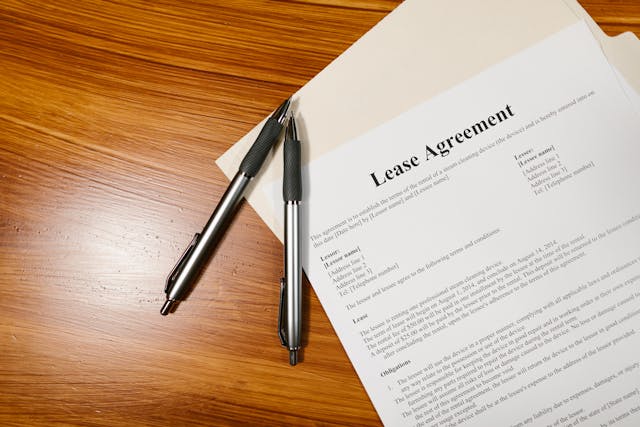Tips to Find Great Tenants for Your Rental Property
Key Takeaways
- Craft an Attractive, Detailed Listing: High-quality photos, clear rental terms, and a description highlighting amenities can attract the right tenants.
- Screen Tenants Thoroughly: A strong screening process—looking at rental history, credit, employment, and references—helps ensure you select responsible renters.
- Maintain Your Property: A well-maintained property signals to tenants that you take pride in your space, encouraging them to do the same.
- Consider Professional Management: Partnering with a property management company can simplify tenant search, ensure legal compliance, and streamline operations.
What’s the secret to finding tenants who will treat your property with respect and pay rent on time? As a rental property owner, securing the right tenants is key to long-term success.
The ideal tenants follow lease agreements, care for your property, and keep your business running smoothly—while the wrong ones can lead to costly headaches.
At Redsail Property Management, we’ve developed proven strategies to help you attract reliable and responsible renters.
Follow these essential tips to make your tenant search easier and more effective:
Create a Detailed and Attractive Rental Listing
A well-crafted rental listing is the first step in attracting quality tenants. Make sure your listing includes:
- High-quality photos that showcase your property’s best features.
- A detailed description highlighting key amenities, square footage, number of bedrooms and bathrooms, and any recent upgrades.
- Rental terms, including monthly rent, security deposit, lease length, and pet policies.
- Clear contact information so interested tenants can easily reach out.
- Highlight any unique aspects of the neighborhood, such as proximity to public transportation, parks and shopping centers.
Price Your Rental Competitively
Setting the right rental price is key to attracting quality tenants.
Pricing too high can drive renters away, while too low may attract unreliable ones.
Research local rental properties, considering location, size, and amenities, to set a fair rate.
Regularly monitor market trends to keep your pricing competitive.
Market Your Rental Effectively
To attract the best tenants, your rental listing should reach a wide audience.
Use multiple marketing channels, such as:
- Local newspapers and community bulletin boards.

- Word-of-mouth referrals from current tenants or neighbors.
- Social media platforms and local real estate groups.
- Professional “For Rent” signs placed in visible locations.
- Networking with local real estate agents who might know of potential renters seeking properties.
Screen Tenants Thoroughly
A thorough tenant screening process helps ensure you select responsible tenants who will treat your property well.
Your screening process should include:
- A rental application collecting details on employment history, income, previous landlords, and references.
- A credit check to assess financial responsibility.
- A background check to identify any past criminal activity.
- Verification of employment and income to confirm they can afford the rent.
- Contacting previous landlords to learn about the applicant’s rental history.
Set Clear Rental Criteria
Before reviewing applications, establish clear tenant criteria to help you make objective decisions.
Examples of rental criteria include:
- Minimum credit score and income-to-rent ratio.
- No history of evictions or lease violations.
- A stable employment history.
- A positive rental history with good references from previous landlords.
Be sure to apply these criteria consistently to comply with fair housing laws.
Keep Your Rental Property Well-Maintained
A well-maintained property attracts responsible tenants.
Ensure your rental is clean, freshly painted, and in good repair before showing it.
Regular upkeep boosts curb appeal and signals to potential tenants that you’re a responsible landlord who values the property, setting the standard for how it should be treated.
Offer Competitive Lease Terms
To attract high-quality tenants, consider offering lease terms that make your property more desirable.

Some attractive lease incentives include:
- Flexible lease durations (e.g., 12-month or 24-month options).
- Allowing pets with reasonable pet fees.
- Offering small move-in incentives, such as a discounted first month’s rent for longer lease agreements.
- Including utility coverage for certain expenses, such as water or trash services.
Conduct Professional Showings
First impressions matter when meeting potential tenants. During property showings:
- Be punctual and professional.
- Highlight the best features of your rental.
- Be prepared to answer questions about the property and lease terms.
- Observe potential tenants’ behavior to gauge their reliability.
- Allow prospective tenants to tour the property freely, while being available for any questions they may have.
Communicate Clearly and Professionally
Clear, prompt communication from the start sets the tone for a positive landlord-tenant relationship.
By being professional and approachable, you'll attract reliable tenants and reduce misunderstandings, boosting overall satisfaction.
Require a Security Deposit and First Month’s Rent Upfront
Requiring a full security deposit and first month's rent ensures financial stability.
Tenants unable to pay upfront may face payment issues later.
Clearly outline refund terms and deductions in the lease to set proper expectations.
Verify Rental History
Speaking with previous landlords can provide valuable insights into a potential tenant’s behavior. Ask landlords about:
- Timeliness of rent payments.
- Whether the tenant took good care of the property.
- Any past lease violations or complaints.
- Whether they would rent to the tenant again.
Use a Strong Lease Agreement
A well-drafted lease agreement protects both you and your tenant. Ensure your lease includes:
- Rent payment terms and due dates.
- Rules for property maintenance and repairs.
.jpg)
- Consequences for late payments or lease violations.
- Any restrictions (e.g., pet policies, smoking rules).
- A clear outline of responsibilities for both parties regarding utilities and property upkeep.
Having a clear lease prevents misunderstandings and helps enforce tenant responsibilities.
Encourage Long-Term Tenancy
Good tenants who stay long-term reduce turnover costs and vacancy periods. Encourage long-term tenancy by:
- Providing good customer service and responding to maintenance requests promptly.
- Offering lease renewal incentives, such as small rent discounts or minor property upgrades.
- Building a positive landlord-tenant relationship.
- Conducting periodic inspections with proper notice.
Work With a Professional Property Management Company
Managing a rental property takes time, effort, and expertise. Hiring a professional property management company can help you:
- Find and screen high-quality tenants efficiently.
- Handle lease agreements and legal compliance.
- Manage rent collection and financial reporting.
- Address maintenance and tenant concerns promptly.
- Ensure your property remains compliant with all local rental laws and regulations.
A reputable property management company can take the stress out of managing rentals while ensuring you attract and retain great tenants.
Their expertise allows property owners to focus on investment growth rather than day-to-day operational issues.
Conclusion
Finding great tenants takes planning, smart marketing, and thorough screening.
By using these strategies, you can minimize risks, reduce vacancies, and enjoy a smoother rental experience.
If managing tenants feels overwhelming, partnering with a professional property management company can help streamline the process and secure reliable, long-term renters.
Investing time in selecting the right tenants now leads to a more profitable, stress-free future.
Need assistance? Contact Redsail Property Management.